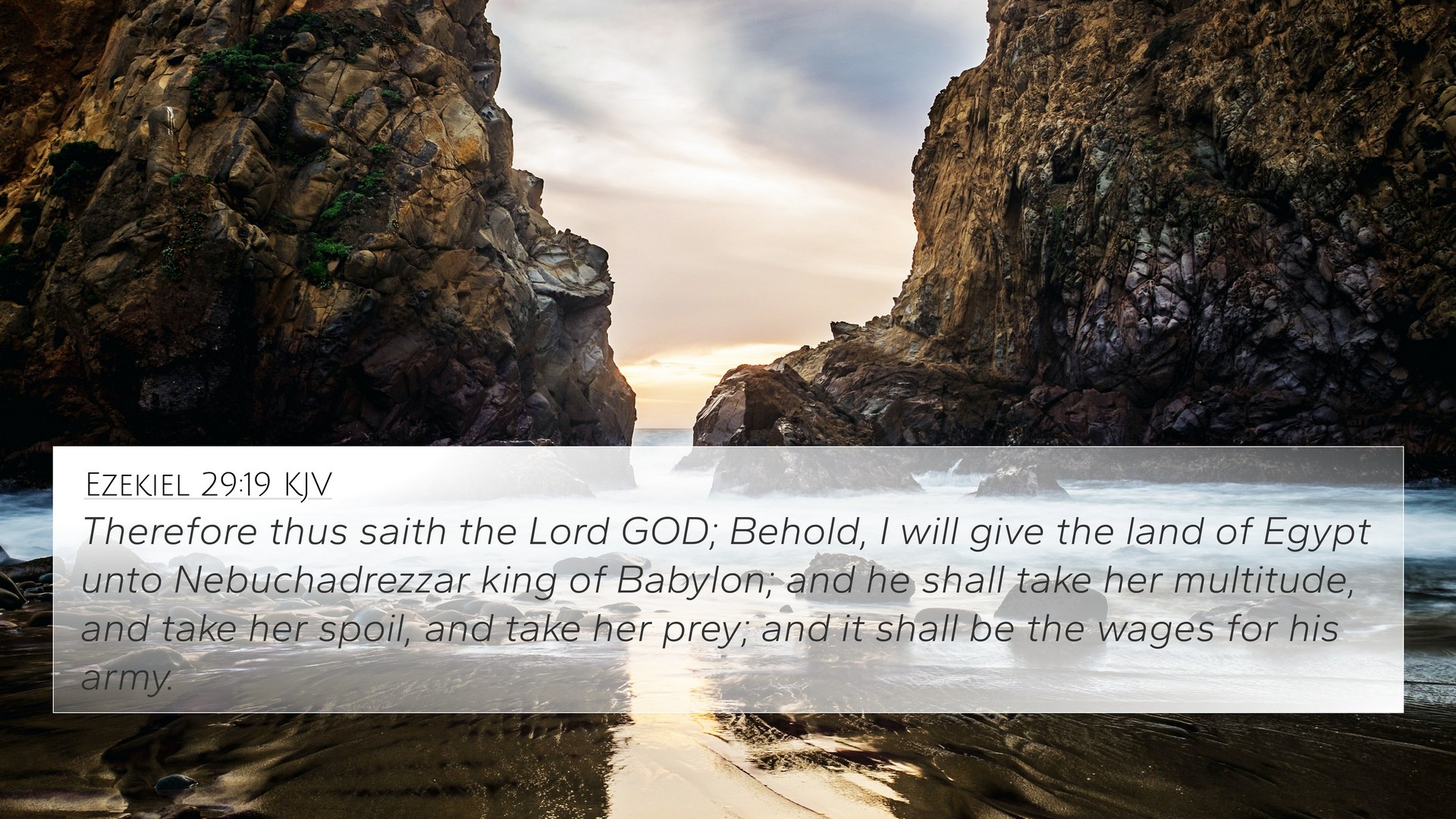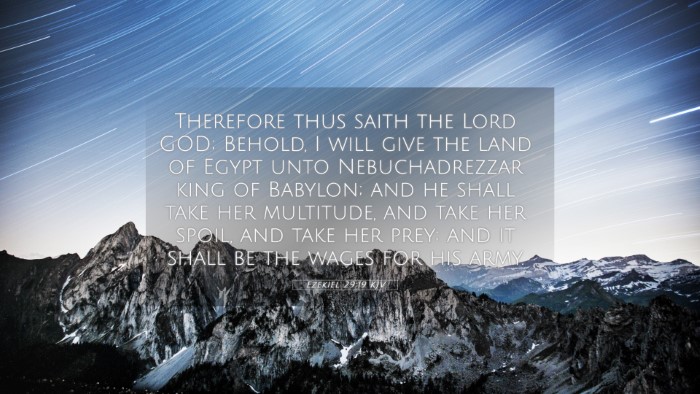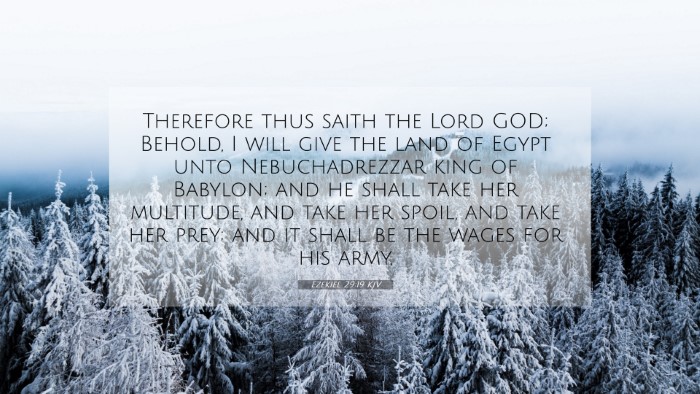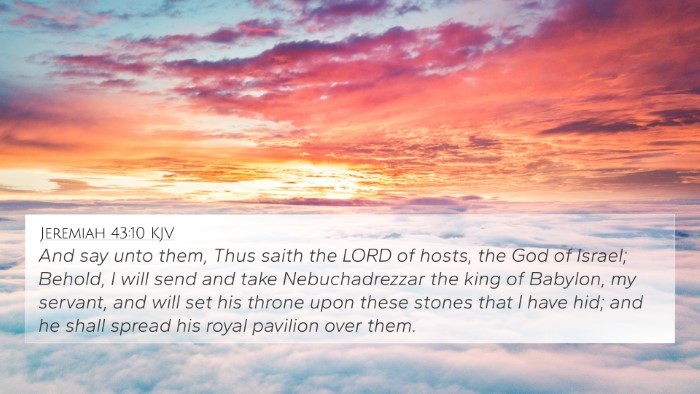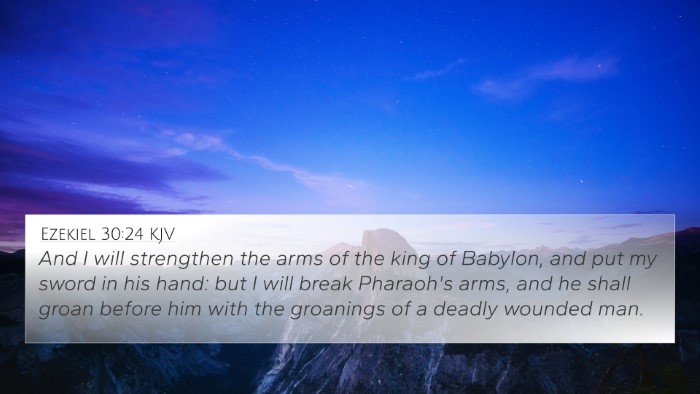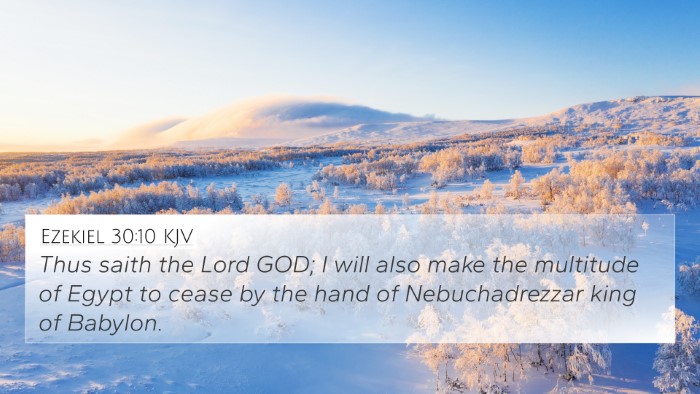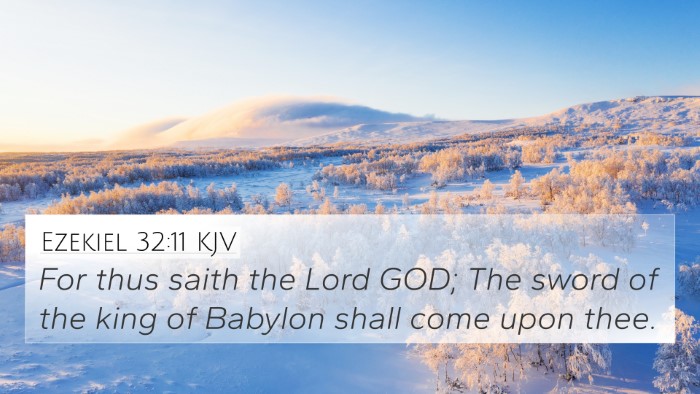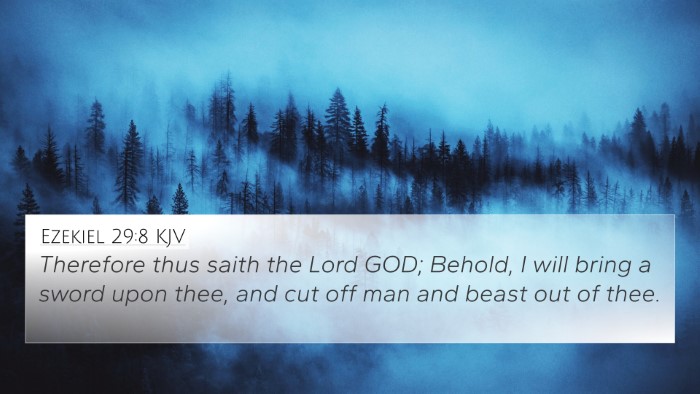Ezekiel 29:19 - Summary and Interpretation
Bible Verse: Ezekiel 29:19
This verse reads: "Therefore thus says the Lord God, behold, I will give the land of Egypt to Nebuchadnezzar king of Babylon; and he shall take her multitude, and take her spoil, and take her prey; and it shall be the wages for his army."
Meaning and Insights
The statement made in Ezekiel 29:19 serves to highlight God's judgment against Egypt and His sovereignty over the nations. This message is part of a larger prophetic discourse concerning Egypt, which had a complex relationship with Israel and often opposed God's plans.
Key Themes from Commentaries
- God’s Sovereignty: Both Matthew Henry and Albert Barnes emphasize that this verse illustrates God’s control over kingdom affairs and military victories. He uses foreign powers as instruments to fulfill His purposes.
- Judgment Against Egypt: Adam Clarke notes that Egypt’s past arrogance led to their downfall, specifically pointing to their oppression and idol worship as reasons for their coming destruction.
- Historical Context: Many commentaries highlight that the prophecy pertains to a specific historical context where Nebuchadnezzar was prophesied to conquer Egypt, which can be understood in the broader narrative of Biblical history.
- The Role of Babylon: The verse illustrates Babylon's role in God's plan, as discussed widely by Henry and Barnes. Nebuchadnezzar's victory is portrayed as not only a military achievement but also as divinely ordained judgment.
Bible Verse Cross-References
Understanding Ezekiel 29:19 is further enriched by examining related scriptures:
- Jeremiah 46:2: Provides context on Egypt's downfall and God’s plans for the nation.
- Isaiah 19:1: Forecasts judgment upon Egypt with imagery of the Lord riding on a swift cloud.
- Ezekiel 30:10-11: Expands on the theme of Egypt being given to Nebuchadnezzar.
- Daniel 2:37-38: Discusses God giving kingdoms to Nebuchadnezzar, affirming the authority of Babylon.
- Exodus 3:8: Reflects on God’s involvement in deliverance and judgment on nations.
- Habakkuk 1:5-6: A testament to God raising up the Babylonians, highlighting the prophetic continuity.
- Revelation 17:15: Alludes to nations symbolically represented in prophetic literature, indicating the ongoing narrative of God’s judgment.
Understanding Connections between Bible Verses
Thematic Bible verse connections can unveil a deeper understanding of the divine narrative surrounding nations like Egypt and Babylon. This includes:
- Inter-Biblical Dialogue: Examining how prophecies concerning Egypt in Ezekiel connect to prophetic declarations in Isaiah and Jeremiah enhances understanding of God’s judgment themes.
- Biblical Themes of Judgment: Cross-referencing between Ezekiel and Exodus allows for comparative analysis of God’s redemptive justice and sovereignty over nations.
- Comparative Bible verse analysis: Looking into how God raises up kingdoms in Daniel strengthens the narrative of divine control throughout history.
Practical Applications of Cross-Referencing
Understanding cross-references can aid in:
- Bible Study: Utilizing a Bible cross-reference guide can lead to a richer understanding of scripture.
- Sermon Preparation: Pastors can find relevant Bible verses that relate to each other to build their message.
- Personal Reflection: Methological cross-referencing allows individuals to explore Biblical themes that resonate with their lives.
Conclusion
In summary, Ezekiel 29:19 serves as a reminder of God's sovereignty, the nature of historical judgment, and the interconnectedness of the scriptures. By utilizing tools for cross-referencing and studying biblical themes, believers can deepen their understanding and apply these rich truths in their faith journeys.
